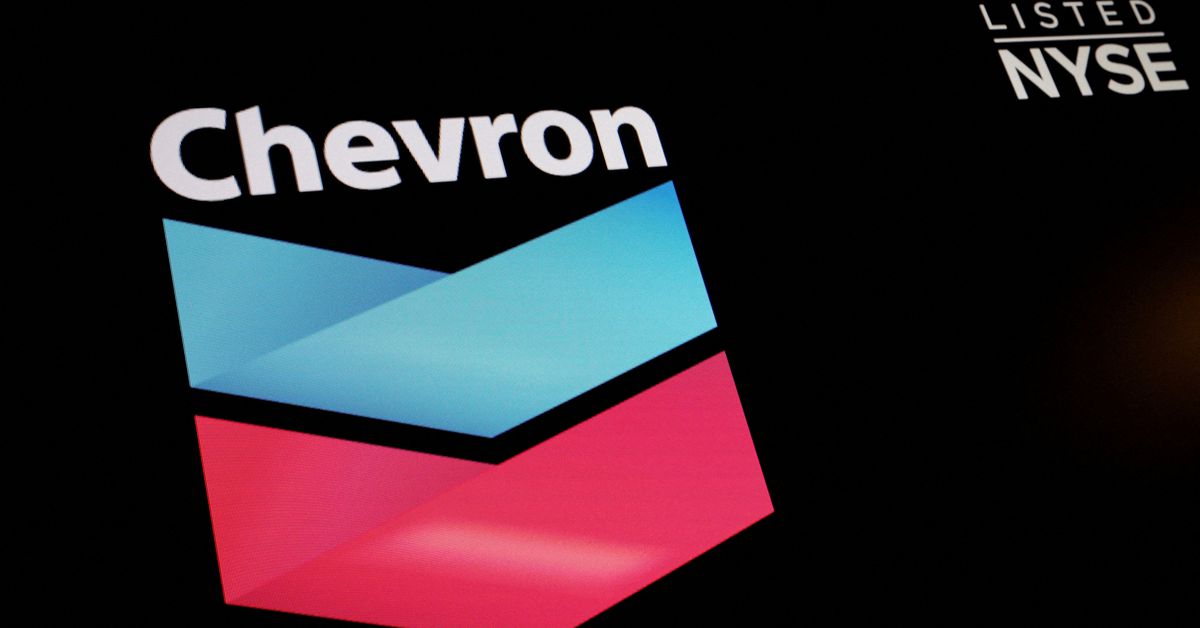July 14 (Reuters) – Chevron Corp (CVX.N) is comfortable with buying U.S. liquefied natural gas (LNG) on long-term contracts rather than constructing its own U.S. domestic export facility, said Freeman Shaheen, the company’s head of global gas.
The second largest U.S. oil and gas producer last month signed agreements with LNG developers Cheniere Energy (LNG.A) and Venture Global LNG for a combined 4 million tonnes per annum (MTPA) of the super-chilled natural gases. The deals will give it more gas and diversify its risk, he said.
Chevron owns stakes in LNG projects in Angola, Australia and has taken early steps with partners to advance a floating LNG project off the coast of Israel that would process gas from the Leviathan field.
The Cheniere and Venture Global LNG deals will provide an outlet for natural gas flowing from its Permian Basin shale holdings in West Texas and New Mexico. The company holds about 2.2 million acres in the largest U.S. shale field.
As Chevron’s production in the Permian has grown, it has had to decide how much gas output would stay in the U.S. and how much should be exported, said Shaheen. It opted not to build an export terminal in the U.S., where several major plants are already under construction.
The company had to balance the investment needed to build an LNG facility in the U.S. against drilling more oil and gas wells in the Permian, or investments in the Eastern Mediterranean, Argentina or West Africa, Shaheen said.
Shaheen said startup problems at Venture Global LNG’s Calcasieu Pass plant that sparked disputes with other major gas producers over the delays in receiving their commercial cargoes has not unduly worried Chevron.
“That is always a concern with any project that you do…So we have to weigh that in the balance in terms of how we manage our sales and our portfolio,” Shaheen told Reuters at the LNG 2023 conference this week.
Top LNG traders Shell (SHEL.L) and BP (BP.L) separately filed for arbitration against Venture Global LNG for failing to supply contracted cargoes, even as it sold to non-contract customers as prices soared last year.
Reporting by Curtis Williams in Houston; Editing by Josie Kao
Our Standards: The Thomson Reuters Trust Principles.
Read the full article here





